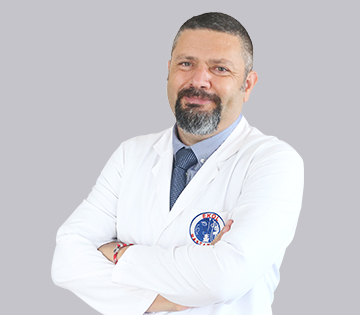Skin blemishes are divided into two groups as congenital and acquired. The golden rule in skin blemishes treatment is the regular use of sunscreen.
Skin Blemishes Treatment with Chemical Peeling
It is one of the preferred methods for removing skin irregularities and blemishes. It is applied with fruit acids.
It lasts about 15-20 minutes and is applied every 3 weeks. Slight redness and burning may occur following the application. It does not affect your daily activities and working life.
Skin Blemishes Treatment With PRP
PRP method is based on the principle of highlighting the major role of the platelets in tissue healing and blood coagulation. When the platelets are injected in a specific area, the blemishes tend to fade and acne scars are removed. Thanks to this methodi the skin becomes more vivid and bright. The healing process initiates quickly and consequently the tissue renewal is ensured. The first effects are noticed within 4 weeks following the application. It is recommended to avoid being exposed to sunlight and applying makeup.as much as possible.
Since our skin is exposed to various factors such as sunlight, UV light, aging, genetics, and more, sometimes these may lead to problems named skin blemishes. These skin blemishes can be temporary, however, some may last more than usual which can affect the mentality of the patient.
Even though the majority of skin blemishes are considered non-harmful, it doesn’t change the fact that they can affect the patient’s life in different ways - easily. Therefore, having an effective blemish treatment would be beneficial.
In this article, we will learn about the treatments for skin blemishes along with the types of skin blemishes, and more detailed information about this topic in general.
Since there are various types of skin blemishes such as acne, pimples, whiteheads, and blackheads along with scars and dark spots; the treatments are shaped around the type.
However, the methods for the treatments can be considered common, such as:
As mentioned in the previous title, there are various types of skin blemishes including:
Skin blemishes can happen anytime and disappear in time. However, if they are persistent and seem like worsening it means you need to consult a doctor. Also, if they’re causing pain or itching when you touch or even without your touch, it means that you need to consult a dermatologist. The blemish treatment may be required.
Apart from medical issues, skin blemishes can cause a decrease in self-confidence. Consulting a dermatologist can help you to deal with them both emotionally and physically.
To prevent skin blemishes, here are some skincare tips and lifestyle practices that may be useful for you:
 He graduated from Akdeniz University Faculty of Medicine in 1990. In 2002, he completed his specialization in İzmir 9 Eylül University, Department of Dermatology. He is a member of Turkey Society of Dermatology and Pediatric Dermatology Association, Dermatooncolgy Association, Turkey Dermatovenerology Association. He gave verbal presentations in international and national meetings and has publications in Turkish and foreign journals.
Areas of interest:
COSMETIC DERMATOLOGY Stain Treatments, Mesotherapy Applications, Chemical Peeling, Spider Web and Rope Applications Hair Transplantation and Hair Applications Anti-Aging Applications
CLINICAL DERMATOLOGY Psoriasis, Acne and Rosacea, Skin - Fungal Infection, Vitiligo (Ala Disease) Pediatric Dermatology (Pediatric Skin Diseases) Skin Cancer, Urticaria (Hives) Treatment of Venereal Diseases (sexually transmitted diseases), Verrucae (Papilloma) Sun Dermatoses, Treatments of Allergic Diseases Hair and Nail Diseases
Dr. Salih Çetiner is married and has 1 son. He speaks well English.
He graduated from Akdeniz University Faculty of Medicine in 1990. In 2002, he completed his specialization in İzmir 9 Eylül University, Department of Dermatology. He is a member of Turkey Society of Dermatology and Pediatric Dermatology Association, Dermatooncolgy Association, Turkey Dermatovenerology Association. He gave verbal presentations in international and national meetings and has publications in Turkish and foreign journals.
Areas of interest:
COSMETIC DERMATOLOGY Stain Treatments, Mesotherapy Applications, Chemical Peeling, Spider Web and Rope Applications Hair Transplantation and Hair Applications Anti-Aging Applications
CLINICAL DERMATOLOGY Psoriasis, Acne and Rosacea, Skin - Fungal Infection, Vitiligo (Ala Disease) Pediatric Dermatology (Pediatric Skin Diseases) Skin Cancer, Urticaria (Hives) Treatment of Venereal Diseases (sexually transmitted diseases), Verrucae (Papilloma) Sun Dermatoses, Treatments of Allergic Diseases Hair and Nail Diseases
Dr. Salih Çetiner is married and has 1 son. He speaks well English. He was born in 1991 in Ömerli. In 2016, he graduated from Celal Bayar University Faculty of Medicine. In 2021, he completed his specialty education at Pamukkale University Faculty of Medicine. He completed his 2022-2023 Compulsory Service at Gaziantep Training and Research Hospital. Uzm. Dr. Sadrettin Aksoy has a good command of English./p>
He was born in 1991 in Ömerli. In 2016, he graduated from Celal Bayar University Faculty of Medicine. In 2021, he completed his specialty education at Pamukkale University Faculty of Medicine. He completed his 2022-2023 Compulsory Service at Gaziantep Training and Research Hospital. Uzm. Dr. Sadrettin Aksoy has a good command of English./p>